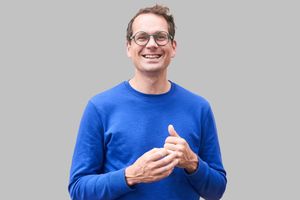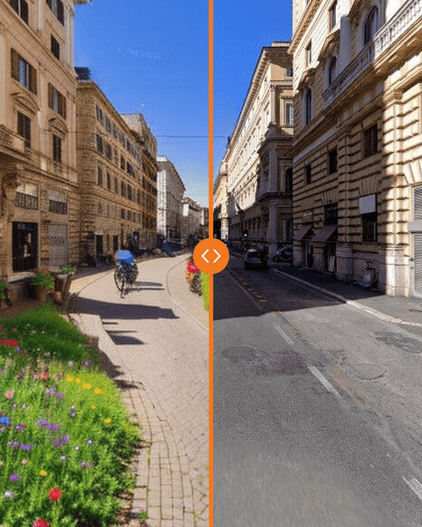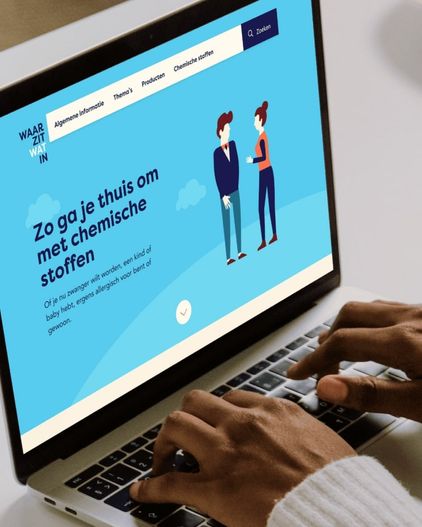The face of spatial planning
Challenge
The Netherlands faces complex spatial issues: from housing construction to nitrogen problems. The Ministry of Housing and Spatial Planning’s Mooi NL programme addresses these challenges. The task: develop a visual identity that conveys both authority and openness, works within government branding guidelines and remains flexible enough to engage diverse audiences – from government partners to the general public. Moreover, all this had to be foolproof to be applied by many civil servants.
Result
We developed a sustainable design system centred on movement and progress. The system is adaptable across various project phases, blending authority with accessibility and ensuring correct application by all users. The new identity simplifies complex matters and fosters optimism among all parties involved – crucial for a programme aimed at making the Netherlands future-proof.
Impact
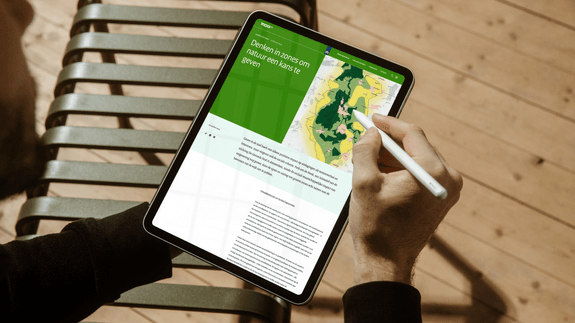
A design for change
Spatial planning in the Netherlands is a complex and decentralised process. The national government sets the framework through laws and policies, while provinces define regional structures and municipalities implement local plans. The challenge lies in balancing the demand for housing with pressing environmental issues like the nitrogen problem. Mooi NL, the programme of the Ministry of Housing and Spatial Planning, tackles these challenges by offering solutions that make the country’s limited space future-proof: beautiful, functional, and sustainable. The visual language we designed reflects this sense of progress, with shifting elements symbolising the dynamic nature of spatial planning and the ongoing evolution of the programme.
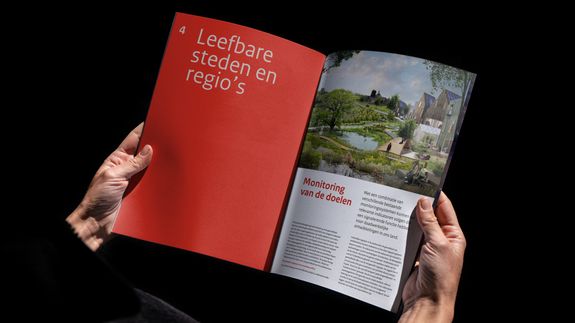
Simplicity for multiple stakeholders
We developed a visual identity for Mooi NL that not only engages governments and institutional partners, but can also communicate clearly with society as a whole in the future. After all, everyone has an opinion on issues related to spatial planning. That’s why we designed a style that exudes authority while remaining open and accessible. A style that’s flexible enough to be used sustainably throughout various phases of the project and in different contexts. All of this works seamlessly within the existing government house style and is foolproof for the many civil servants involved.
This project has everything we excel at: a timeless strategic design, on a long-term social theme.
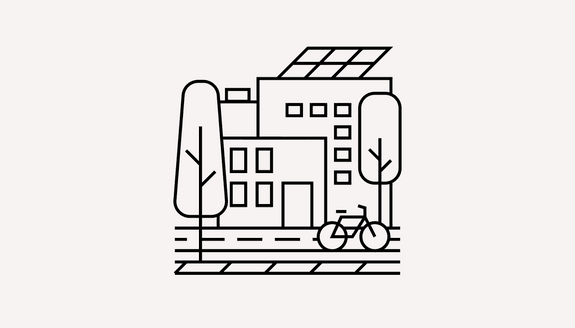

Flexibility for timeless design
As you can probably sense, a programme focused on shaping the Netherlands isn’t something that can be completed overnight. The project will go through several phases, each requiring engagement with new target groups. It all starts with gaining support from government bodies, provinces, other ministries and partners, and will eventually grow to involve society as a whole.
That’s why it’s so important for the visual style to work in the long term. Not trendy, but designed to be timeless. This requires flexibility in the design approach. After all, in different phases, for different audiences and in different contexts, you’ll need to communicate in different ways. We tackled this challenge effectively by making the design function as a system. The system is solid, but it can be adapted by introducing different colours, images, or adjusting the tone of voice. This allows the design to evolve with the project’s phases while remaining instantly recognisable.
Ready to change things?
